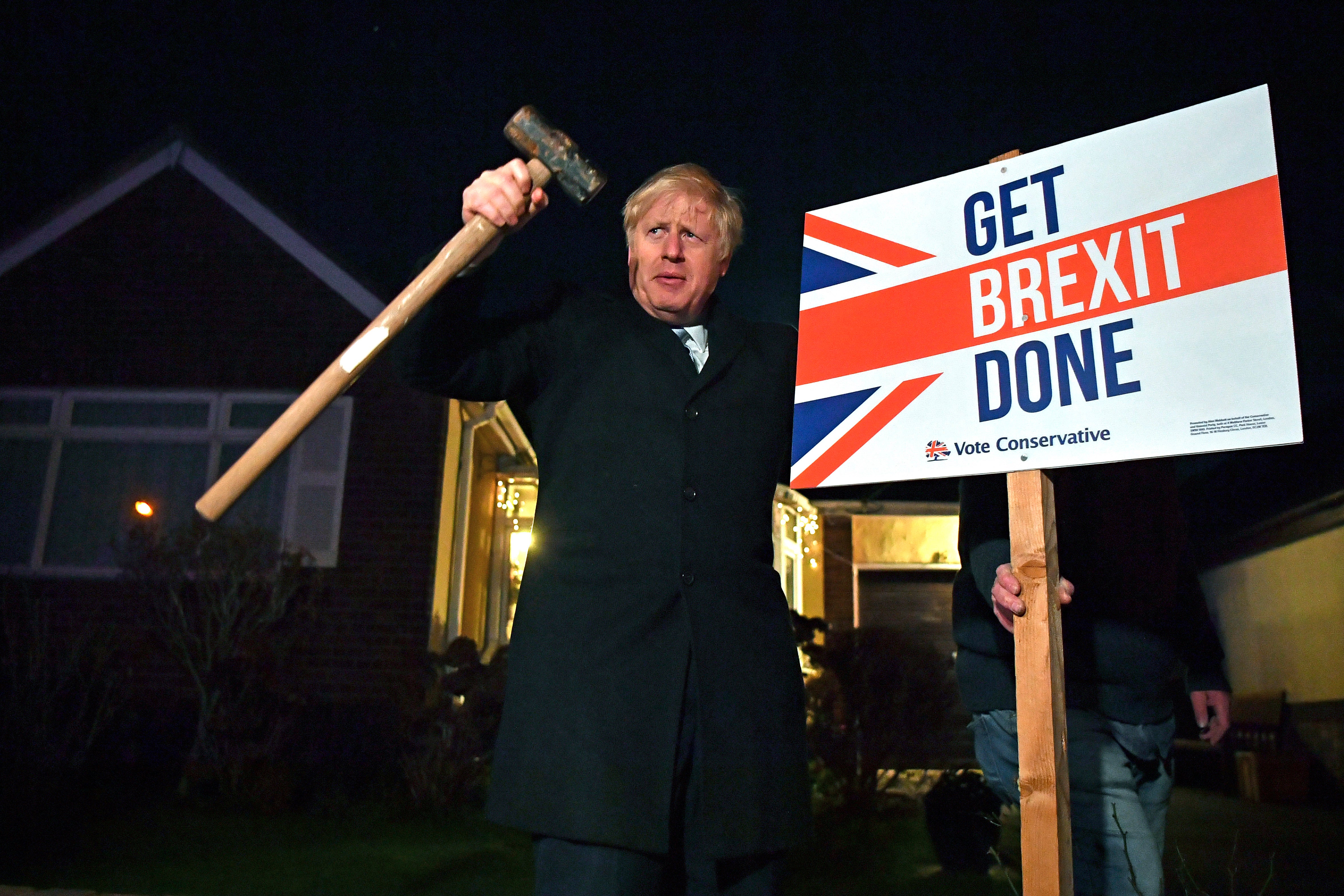Playing games with the Northern Ireland protocol puts the UK at risk
Editorial: Businesses, especially those based overseas, are not going to make major investments in the British economy when they are faced with the possibility of a trade war between Britain and Europe

The last time the government tried to breach international law, at least it was – uncharacteristically – open about it. Back in September 2020, there was, as now, a proposal to override the UK’s Brexit treaty obligations as laid out in the Northern Ireland protocol. Then, also as now, Brandon Lewis was secretary of state for Northern Ireland, and he was good enough to tell the House of Commons: “Yes, this does break international law in a very specific and limited way.” Which, as any miscreant up before the beak might attest, isn’t going to make everything all right.
Now though, perhaps chastened by his previous candour, Mr Lewis tells it differently. The new line is that it is perfectly legal, and will obviously be so when the relevant bill is published. The legal basis for the legislation will be presented to parliament, but not the legal case or reasoning. That is not going to make things all right, either.
Indeed, there is already cause for suspicion. As Mr Lewis toured the television studios, he made it perfectly clear that the government’s legal advice was not going to be released, despite intense public interest. Of course, all legal advice is confidential, but if it was going to help Boris Johnson out of a tight corner he’d surely be happy to leak it in full, or actually publish it.
As Theresa May discovered before, the Commons has the power to compel the government to realise the legal advice. Not for the first time, the prime minister seems to have something to hide.
Despite the helpful efforts of the attorney general, Suella Braverman, the legal case may not be as watertight as Mr Johnson would wish. For example, the first Treasury counsel, James Eadie QC, was not, as might have been expected, consulted specifically about the lawfulness of the new legislation, but was told to assume there was a respectable legal basis for the government’s position. The impression is of a government shopping around for legal advice that suits it politically. Again, such a strategy may not withstand judicial review.
Even to a lay observer, it seems obvious that, even if the new bill might become valid domestic law, it would still in effect breach an international treaty obligation if it were ever implemented. Perhaps Mr Johnson is using it as a bargaining ploy in his attempt to make the EU renegotiate the deal. That might work (unlikely) but would also buy him some time from his critics on the Eurosceptic right, and save his job for a few more vital months.
On the other hand, he will further alienate others in the party who are losing confidence in him and have promised to stage guerrilla warfare on this bill (which was obviously not in the manifesto). Even if the bill becomes law, it might require ministerial decisions to put it into effect. Until enacted by customs officers and vets in Larne, the threat of illegality won’t be turned into an actual breach of international law. The crunch may be a long way off, but the damage is being done now.
This is no time to gamble with the Irish peace process or the British economy. The government’s bill proposes to cancel the right of the Northern Ireland assembly to approve or reject the protocol in a scheduled vote in 2024. This obviously has nothing at all to do with paperwork at the border, phytosanitary checks, or sandwiches being shipped from England. It is a purely political ploy, aimed at appeasing the DUP – and with an eye to the majority that exists now, and will probably continue to exist, in the Northern Ireland assembly, that actually accepts the protocol, and does not wish to scrap it but merely to reform it.
To keep up to speed with all the latest opinions and comment, sign up to our free weekly Voices Dispatches newsletter by clicking here
Insufficient thought seems to have been given to the consequences of Sinn Fein withdrawing from the Good Friday Agreement. It doesn’t need that much imagination; a passing acquaintance with the history of the Troubles is sufficient.
The economic effects on Northern Ireland and the wider UK economy of these silly games are already baleful. Businesses, especially those based overseas, are not going to make major investments in the British economy when they are faced with the possibility of a trade war between Britain and Europe. Why would they, if their exports to the EU, still easily the UK’s largest market, could face punitive tariffs, and the UK faces a deeper recession? Uncertainty kills business confidence.
That fear factor is already in play, because a UK-EU trade war is the inevitable – and legal – consequence of the UK renouncing its obligations under international treaty law and ignoring the existing arbitration procedures. An investment strike, added to high inflation and a labour shortage, will leave the UK economy among the weakest in Europe, with living standards to match. So much for the “oven-ready” deal and “the Brexit we voted for”.



Join our commenting forum
Join thought-provoking conversations, follow other Independent readers and see their replies
Comments